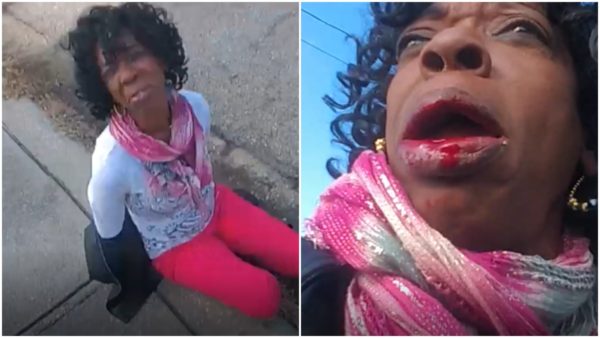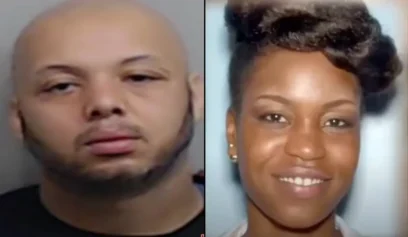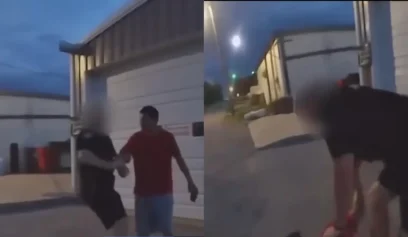A Virginia jury has awarded a Black woman $300,000 after she was forced face-down on the pavement and injured by an officer.
Monica Cromartie sued Petersburg Police Officer Brian Lee Billings for excessive force and false arrest stemming from a February 2015 traffic stop. A Petersburg Circuit Court awarded Cromartie $300,000 in punitive and compensatory damages on July 12.
“She was very glad that after carrying this matter for six years of her life that she finally got the verdict on the constitutional claims that she was looking for, something that demonstrates that the conduct of this officer was not acceptable for the city of Petersburg or for the state,” said Andrew Bodoh, one of her attorneys.
On Feb. 12, 2015, Cromartie, who was 54 on the date of the traffic stop, is 4 feet 9, 100 pounds, and partially disabled. She was pulled over by Billings for speeding. Much of the encounter was captured on police body camera.

According to the lawsuit, Cromartie exited her vehicle at one point to protest the stop but got back in when instructed by Billings.
“I need you to roll down your window,” Billings said as he knocked on the window.
Cromartie, on her cellphone at the time, gave no indication that she heard Billings. When he knocked on the window a second time and repeated his request to lower the window, Cromartie instead lowered her cellphone and said, “Hey, officer, leave me alone.” Billings then opened the car door and ripped Cromartie from the vehicle, throwing her to the ground face-down. Nineteen seconds passed between when Billings first knocked on the window and when Cromartie hit the ground.
Billings put his knee on Cromartie’s back and placed her in handcuffs and leg shackles. She sat on the curb as Billings searched her vehicle and discovered a vaping device and a container that he claimed contained “marijuana residue.”
Cromartie was booked on marijuana possession and obstruction of justice chares that were ultimately thrown out. She then sued Billings for false imprisonment and assault. Billings testified that he pulled Cromartie from her vehicle to arrest her for obstruction of justice. He retired from the department months after the incident and testified that he was never disciplined for his actions. Billings also admitted he hadn’t asked Cromartie to open her door before he yanked her from the vehicle.
In 2017, a jury awarded Cromartie $23,499 in damages for state law claims. However, the trial judge found that Billings had immunity when it came to allegations that he violated Cromartie’s Fourth Amendment rights via excessive force and false arrest, and for an illegal search of her car and her purse. When Cromartie appealed, the Supreme Court of Virginia reversed the trial judge’s ruling and found that Billings was liable for the claim, clearing the way for her suit against him to proceed.
“Billings is not protected by sovereign immunity, however, because his actions exceeded simple negligence,” Chief Justice Donald W. Lemons wrote for the court in a January 2020 ruling. “Neither her vehicle nor her purse could have contained evidence of speeding. Additionally, neither her vehicle nor her purse could have contained evidence related to obstruction of justice, the offense for which Billings obtained an arrest warrant from a magistrate after the encounter.”
Attorney Tom Roberts, who also represented Cromartie, said injuries she suffered during the arrest include a scar above her eye and a missing tooth. Roberts said that since the encounter with Billings even when Cromartie was faced with potentially dangerous situations at her home, including a threat from her estranged husband and a neighbor who showed up with a baseball bat to confront her grandchildren, she didn’t call the police.
“She chose not to call the police because of her experience with Officer Billings that made her demonstrably fearful of interacting with the police in the very situation where police should have been called,” Roberts said.


